Rohingya in Bangladesh: anniversary of the exodus
-
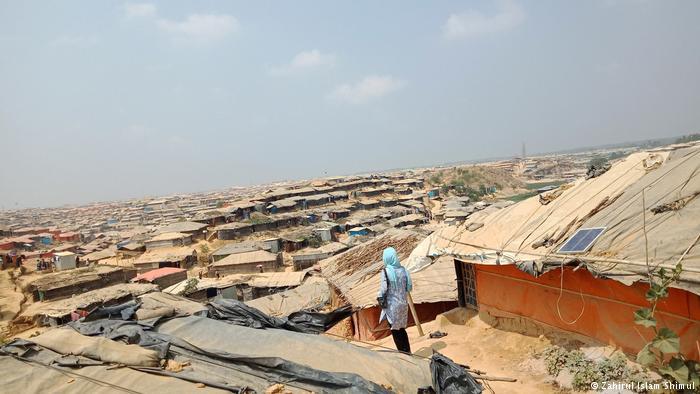
Dusty, hot, narrow – and almost as big as Cologne: Rohingya began fleeing from Myanmar to Bangladesh decades ago. A refugee camp grew up next to the village of Kutupalong. As a result of the mass exodus since August 2017, the number of inhabitants there has risen sharply and further camps have been set up. A total of almost one million people now live there – a city almost the size of Cologne, but without the infrastructure -
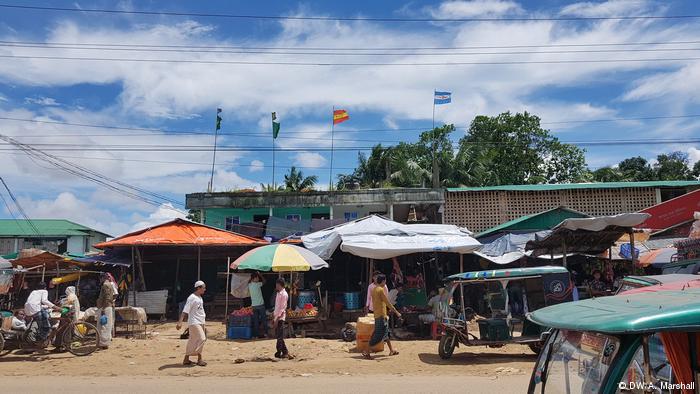
Football fever in the refugee camp: international flags fly at the entrance to the Kutupalong refugee camp. During the World Cup, the Brazilian, Argentinian and occasionally even the German flag were to be seen. Football fever gripped the camp and the surrounding villages, prompting coverage by citizen reporters. Even in a difficult situation there is joie de vivre -
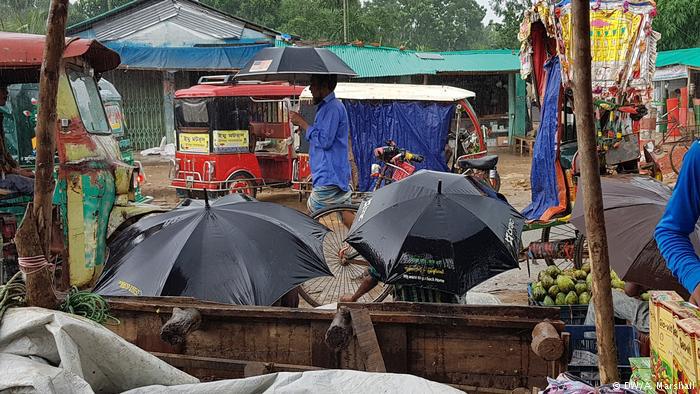
Monsoon floods and landslides: threatened by cyclones in the spring and torrential rains during the monsoon season, life here is mostly about coping with extreme hardship. The programme "Palonger Hotha" by citizen reporters serves partly to disseminate vital information: where can I find bamboo poles to reinforce the accommodation? Which residential areas should be evacuated because of the threat of mudslides? -
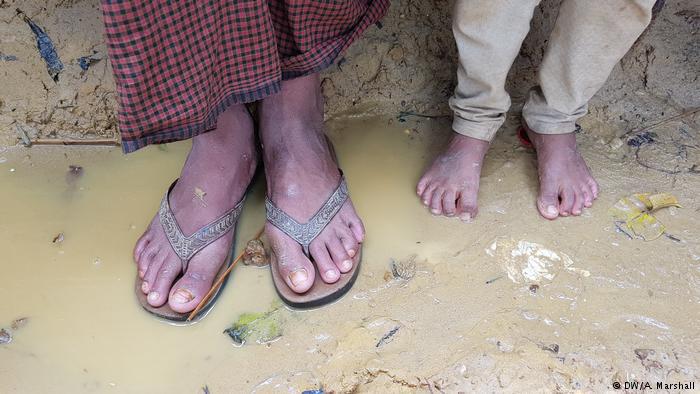
The aim of the mission is also to strengthen people's identity by taking their everyday experiences seriously. The team of reporters, consisting of young Rohingya and local Bangladeshi people, asked: What is the impact on family life when you have to sit huddled together in a narrow hut for hours on end due to the weather? -
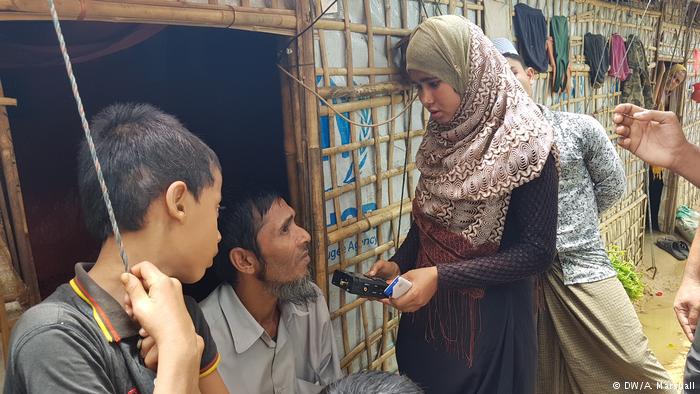
Collecting constructive ideas: an important concern of the citizen reporters is to find constructive ideas and inspire the listeners. Reporter Sajeda reported on "hanging vegetable gardens" where beans are planted – a way to improve the food supply despite the limited space. There are also reports featuring household remedies for diseases that accumulate in the rainy season for hygienic reasons -
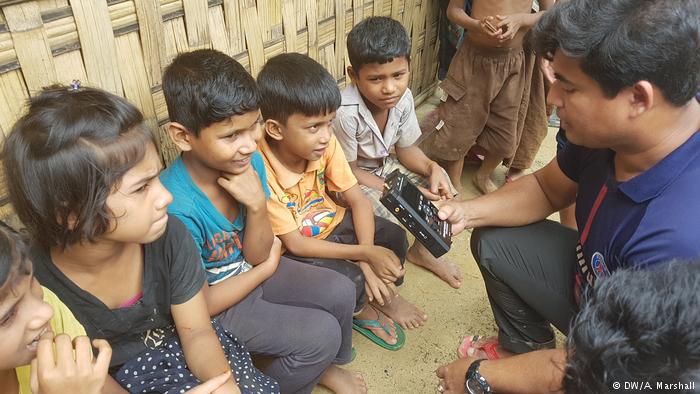
Education instead of "lost generation": how do children remember their way home? What can they do to ensure they donʹt get lost in the huge refugee camp? What are the challenges of the Learning Centres in the camp? For reporter Iqbal, the education of the refugee children is a special concern. There are no real schools for them -
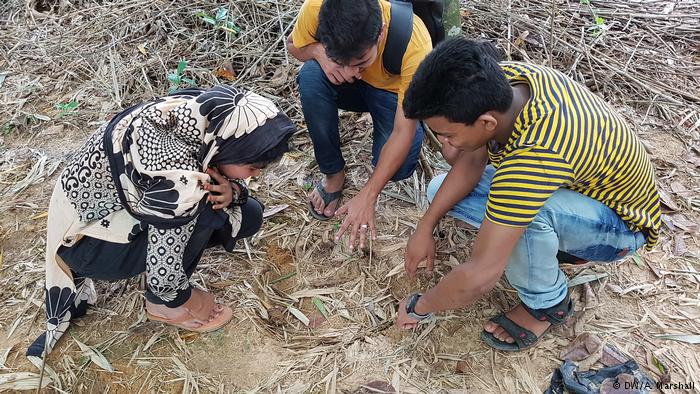
Elephant alarm new for Rohingya: the refugee camp is on the route of the Asian elephants. At the beginning of the year there were several deaths after people in the camp tried to chase the animals away. The United Nations organised training courses on the correct handling of elephants, while "Palonger Hotha" reporters covered the initiative -
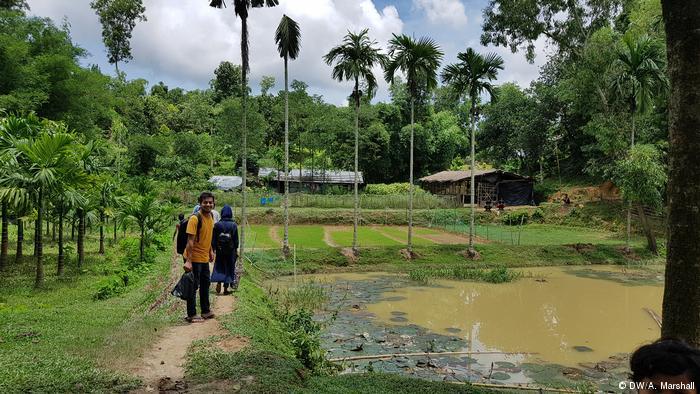
Green hills deforested: some Bangladeshi people from the area have found work in connection with the refugee camp. But they also complain that hundreds of thousands of newly arrived Rohingya have raised food prices in the region. Hills have been deforested because the refugees needed space and firewood. That is why it is important to include the perspective of the locals on citizensʹ radio -
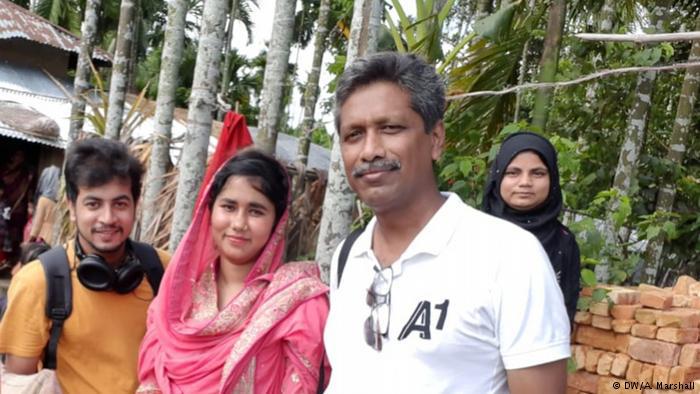
Conflict-sensitive approach: the "Palonger Hotha" team with their local trainer Mainul Khan aims to deal responsibly with potentially sensitive issues. Politics is not the subject of the programme. On the other hand, the UNHCR's "Smart Card", which is supposed to facilitate the (voluntary) return of refugees to Myanmar and has been met with suspicion by many, is well reported -
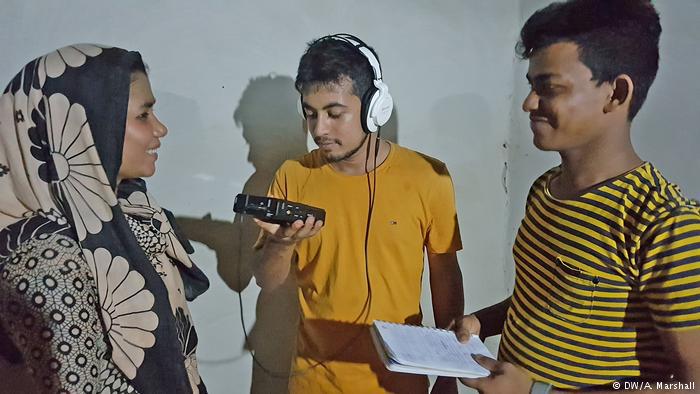
Overcoming the trauma: on the anniversary of the beginning of the mass exodus on 25 August, traumatic experiences were shared. People also told us how they cope with their trauma – one step at a time
https://qantara.de./en/node/19616
Link
To all image galleries
